Find Help
More Items From Ergsy search
-

Blood Poisoning - Sepsis
Relevance: 100%
-
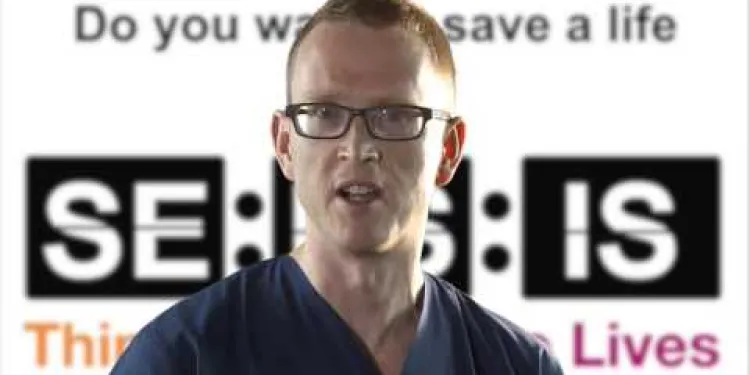
Sepsis - a patient story
Relevance: 63%
-

NHS RightCare Scenario: Sepsis
Relevance: 54%
-

1. Introduction to sepsis and serious illness
Relevance: 54%
-

How does methanol poisoning differ from ethanol poisoning?
Relevance: 45%
-

Is dialysis used in methanol poisoning cases?
Relevance: 44%
-

Can methanol poisoning be treated?
Relevance: 43%
-
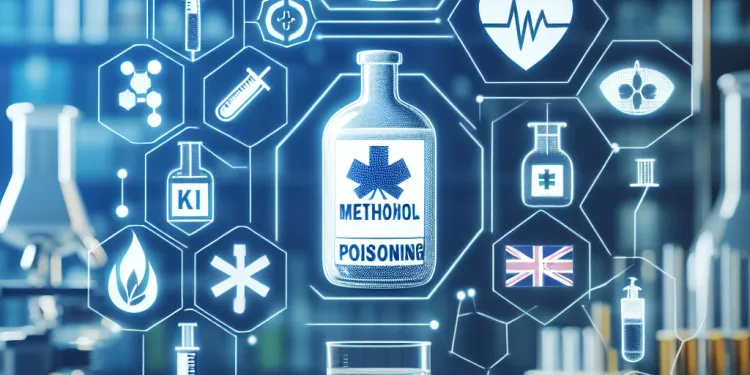
What is methanol poisoning?
Relevance: 43%
-

What are the symptoms of methanol poisoning?
Relevance: 42%
-

Can methanol poisoning cause permanent damage?
Relevance: 40%
-

How can methanol poisoning be prevented?
Relevance: 38%
-
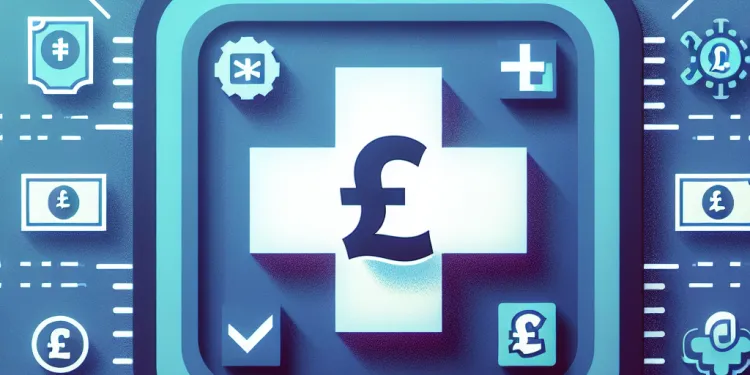
What should you do if you suspect methanol poisoning?
Relevance: 38%
-

How quickly do symptoms of methanol poisoning appear?
Relevance: 37%
-
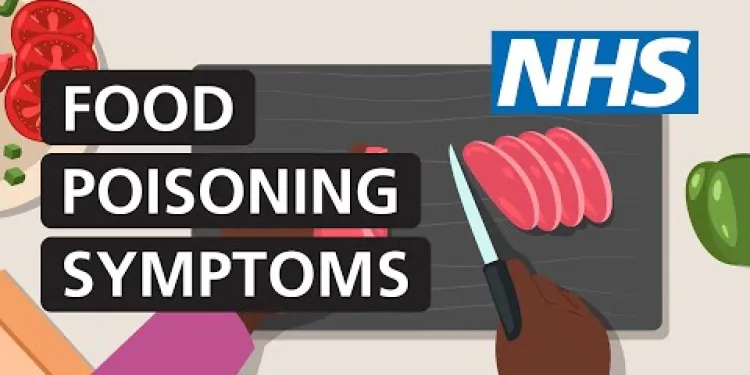
How to tell if you have food poisoning (symptoms) | NHS
Relevance: 35%
-

Is there a specific test to diagnose methanol poisoning?
Relevance: 32%
-

Are there any poisonous spiders in the UK?
Relevance: 31%
-

What is the role of ethanol in the treatment of methanol poisoning?
Relevance: 30%
-

What types of visual disturbances are associated with methanol poisoning?
Relevance: 26%
-
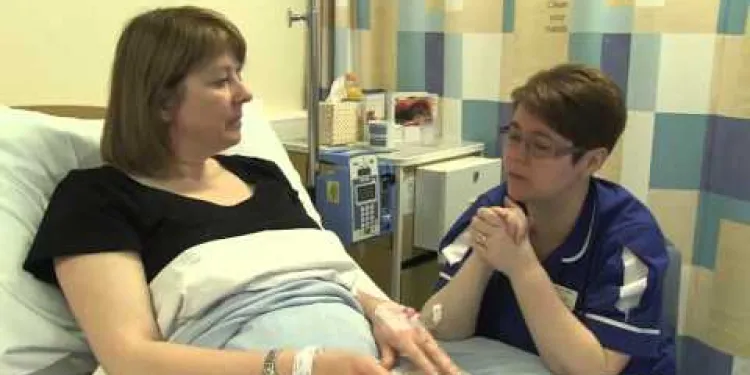
Blood Transfusion
Relevance: 24%
-
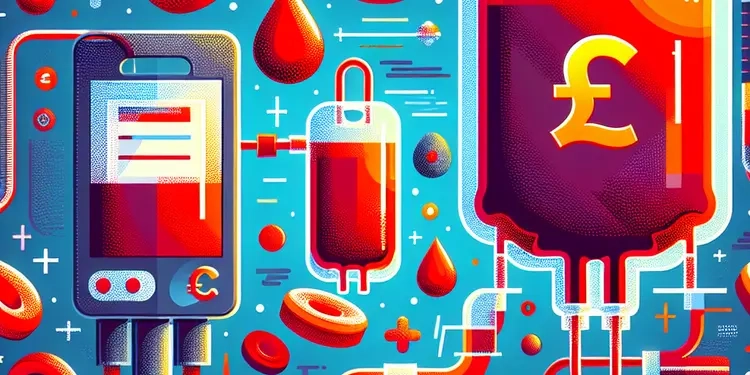
What is a blood transfusion?
Relevance: 23%
-

Blood Product Transfusions
Relevance: 23%
-
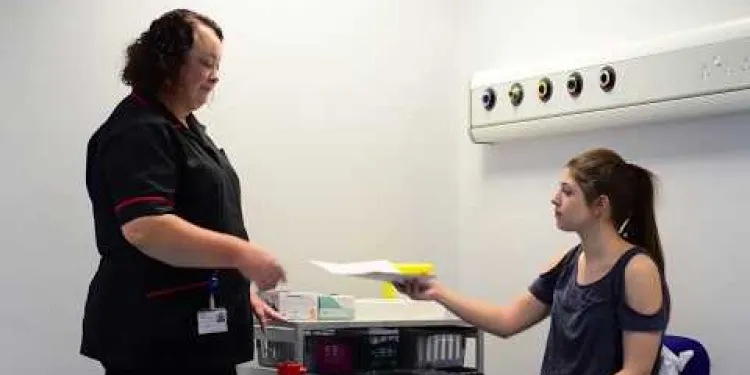
Having a blood test
Relevance: 23%
-
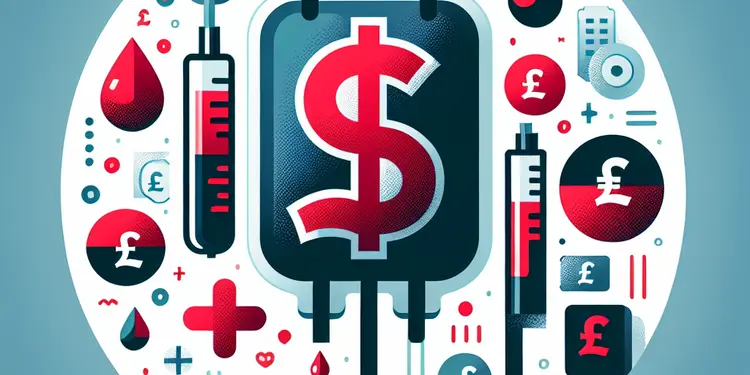
What are some common reasons blood transfusions are needed?
Relevance: 22%
-
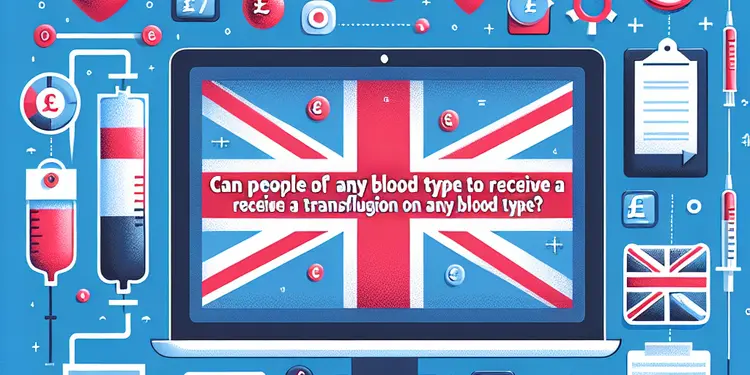
Can people of any blood type receive a transfusion of any blood type?
Relevance: 22%
-
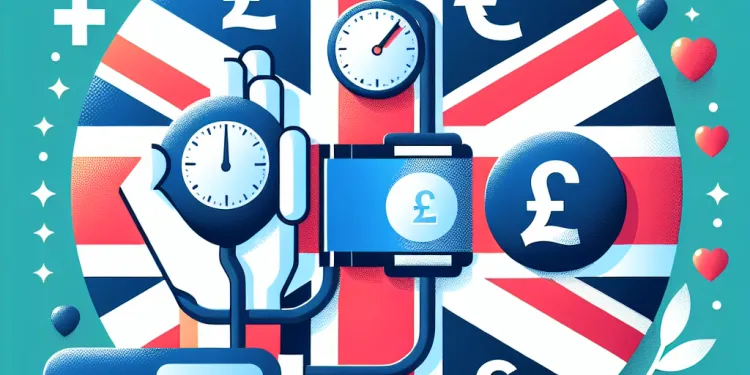
What is high blood pressure?
Relevance: 22%
-
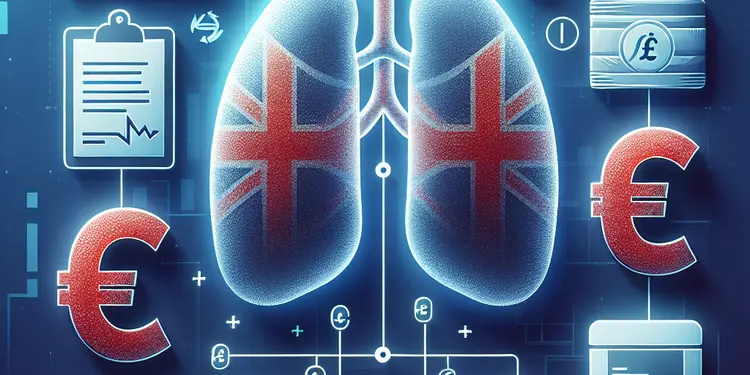
Is Hepatitis B a risk in blood transfusions?
Relevance: 21%
-
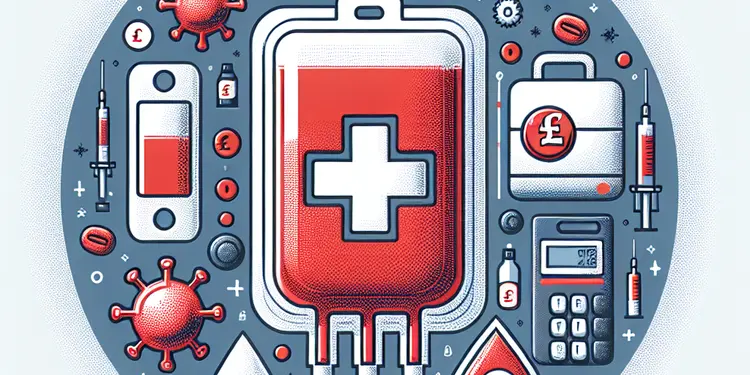
Is HTLV a risk in blood transfusions?
Relevance: 21%
-
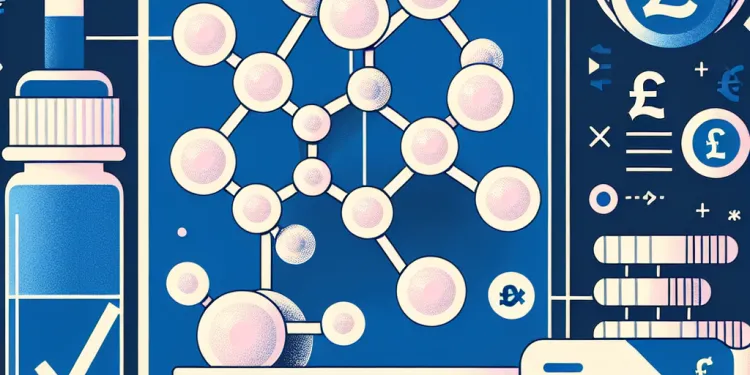
What is fomepizole and how does it work?
Relevance: 21%
-
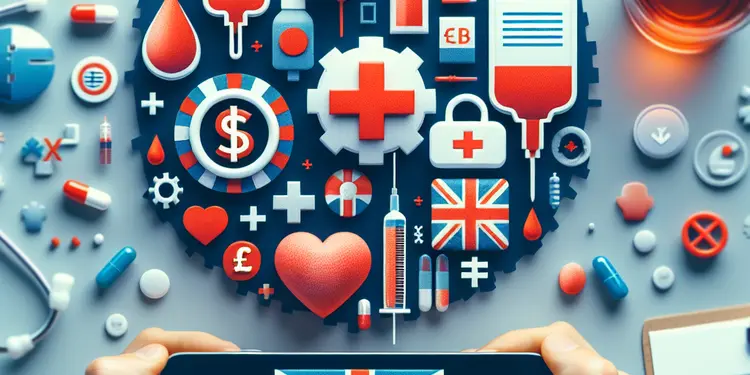
Are there risks associated with blood transfusions?
Relevance: 21%
-
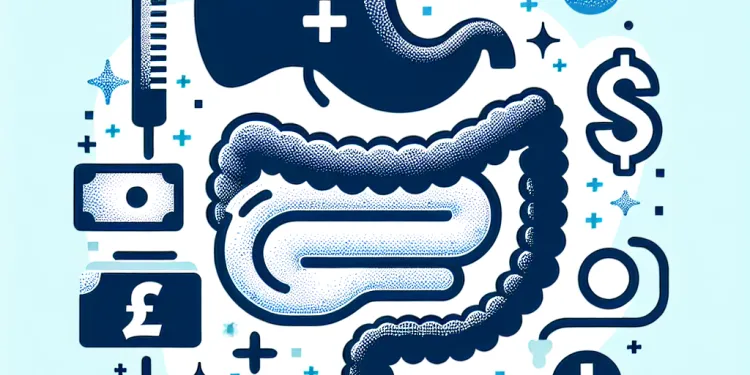
What are the potential complications of appendicitis?
Relevance: 21%
-
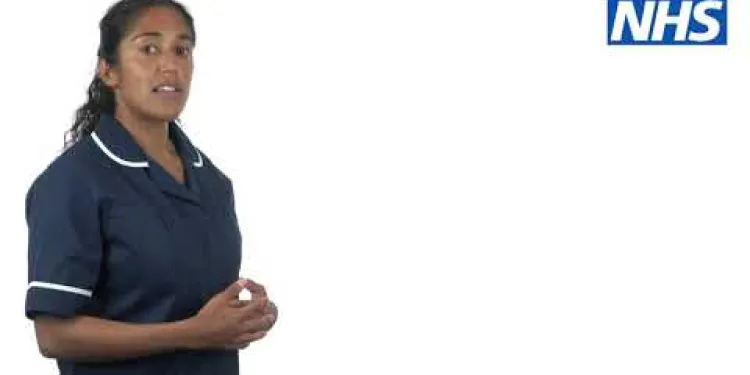
Seven Reaasons For Measuring blood pressure
Relevance: 21%
-
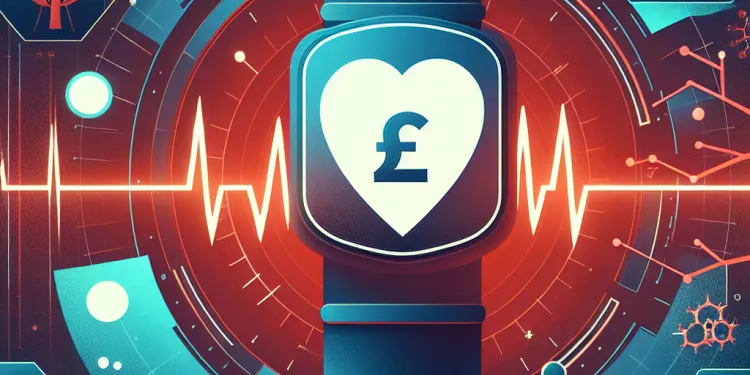
What causes high blood pressure?
Relevance: 21%
-
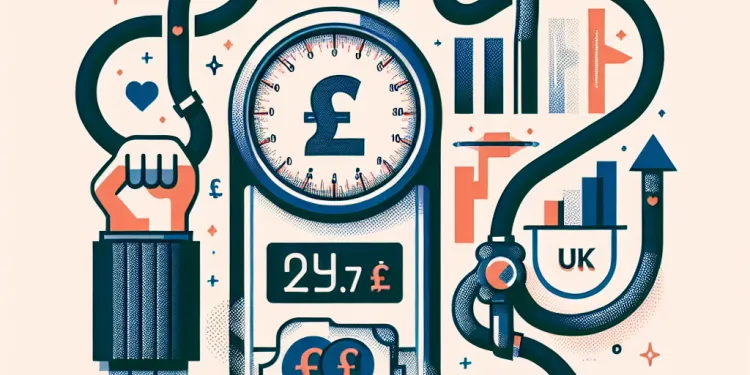
How is high blood pressure diagnosed?
Relevance: 21%
-
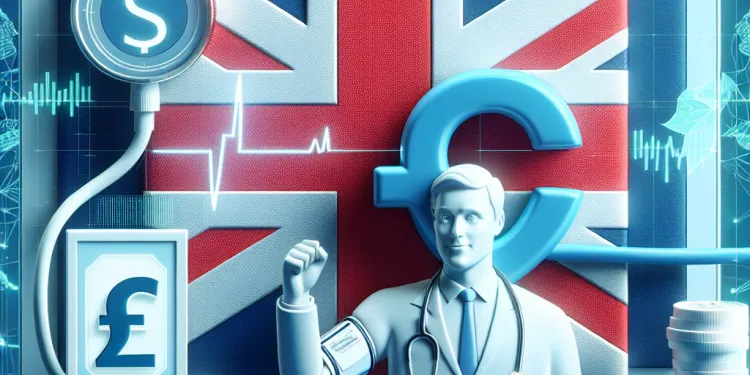
Can high blood pressure be prevented?
Relevance: 21%
-

Does caffeine affect blood pressure?
Relevance: 21%
-

Is there an age limit for receiving blood transfusions?
Relevance: 21%
-

Is Chagas disease a concern with blood transfusions?
Relevance: 20%
-
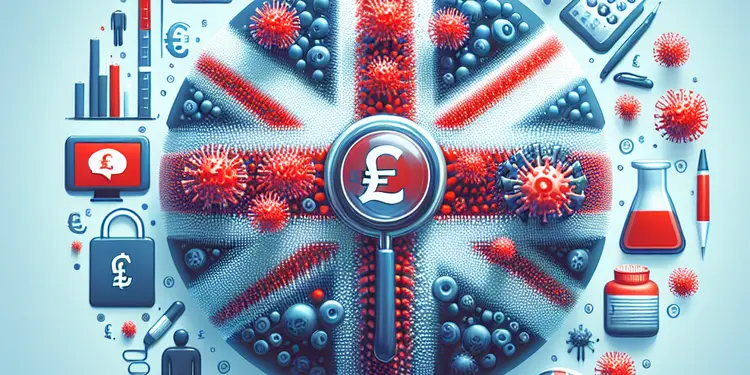
Is Zika virus screened for in blood transfusions?
Relevance: 20%
-

Why is methanol dangerous to humans?
Relevance: 20%
-
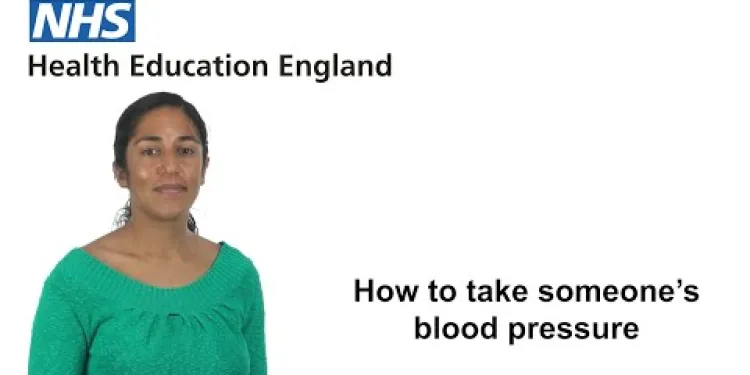
How to take someone's blood pressure
Relevance: 20%
Blood Poisoning - Sepsis
What is Sepsis?
Sepsis, often referred to as blood poisoning, is a life-threatening condition that occurs when the body's response to an infection damages its own tissues. This overactive and toxic response can lead to organ failure and, if not promptly treated, can be fatal. Sepsis can develop quickly and requires immediate medical attention.Causes of Sepsis
Sepsis can be caused by any type of infection, whether bacterial, viral, or fungal. Common sources of infection that can lead to sepsis include pneumonia, urinary tract infections (UTIs), and infections in the abdomen. Invasive medical procedures and weakened immune systems can also increase the risk of developing sepsis.Symptoms of Sepsis
Early symptoms of sepsis can be nonspecific, making it difficult to diagnose. Common signs include high fever, chills, rapid heart rate, and rapid breathing. Other symptoms can include extreme pain or discomfort, clammy or sweaty skin, confusion, and dizziness. It's crucial to seek medical help immediately if sepsis is suspected.Diagnosis and Treatment
Diagnosis of sepsis typically involves a combination of blood tests, imaging studies, and physical examinations. Treatment for sepsis usually requires antibiotics, intravenous fluids, and support for affected organ systems. In severe cases, patients may need intensive care and support from ventilators or dialysis machines.Prevention and Awareness
Preventing sepsis starts with good hygiene and immediate treatment of infections. Vaccinations, proper wound care, and responsible use of antibiotics also play crucial roles. Public awareness in the United Kingdom is essential, as early recognition and prompt treatment can save lives. Understanding the symptoms and seeking rapid medical attention are key to preventing severe outcomes.Support and Resources
In the UK, organisations like The UK Sepsis Trust offer valuable resources and support for patients and families affected by sepsis. They provide information on recognising symptoms, seeking treatment, and managing recovery. Being informed and proactive can significantly impact outcomes for those at risk of sepsis.Blood Poisoning - Sepsis
What is Sepsis?
Sepsis, also called blood poisoning, is a serious illness. It happens when the body reacts too strongly to an infection. This bad reaction can hurt the body’s own parts, like organs. Sepsis can get very dangerous very fast, and it can even cause death. It needs quick medical care.Causes of Sepsis
Sepsis can start from any infection, like those caused by bacteria, viruses, or fungi. Common infections that might lead to sepsis are pneumonia, bladder infections, and infections in the belly. If someone has weak health or needs certain medical treatments, they might have a higher chance of getting sepsis.Symptoms of Sepsis
Sepsis symptoms can be hard to notice at first. Common signs are a high fever, chills, fast heartbeat, and quick breathing. There might also be a lot of pain, sweaty or cold skin, confusion, and dizziness. It is very important to get medical help as soon as possible if sepsis is likely.Diagnosis and Treatment
Doctors check for sepsis using blood tests and other types of exams or scans. To treat sepsis, doctors often give medicines that fight infection, called antibiotics, fluids, and help for the organs that are not working well. In very bad cases, a person might need care in the hospital with machines to help them breathe or clean their blood.Prevention and Awareness
You can help stop sepsis by keeping clean and treating infections quickly. Vaccines, taking care of cuts or wounds, and using medication wisely are also important. Knowing about sepsis in the UK can help save lives. Seeing the signs early and getting quick help is key to stopping sepsis from getting worse.Support and Resources
In the UK, groups like The UK Sepsis Trust help people who have sepsis and their families. They give advice on spotting signs, getting treatment, and healing. Knowing what to do can really help those in danger of sepsis.Frequently Asked Questions
What is sepsis?
Sepsis is a potentially life-threatening condition caused by the body's response to an infection. It occurs when the body's immune response goes into overdrive, causing widespread inflammation.
What causes sepsis?
Sepsis can be caused by any type of infection, including bacterial, viral, or fungal infections. Common sources include urinary tract infections, pneumonia, and infections in the abdomen.
What are the symptoms of sepsis?
Symptoms of sepsis can include a high fever, chills, rapid heart rate, rapid breathing, confusion or disorientation, extreme pain or discomfort, and clammy or sweaty skin.
Who is at risk for sepsis?
Anyone can develop sepsis, but certain groups are at higher risk, such as the elderly, infants, people with weakened immune systems, and those with chronic illnesses like diabetes or kidney disease.
How is sepsis diagnosed?
Sepsis is diagnosed through a combination of physical examinations, medical history, and tests such as blood cultures, urine tests, and imaging studies to identify the source of infection.
Is sepsis treatable?
Yes, sepsis is treatable, especially if caught early. Treatment typically includes antibiotics, intravenous fluids, and sometimes medications to support blood pressure and organ function.
What should I do if I suspect someone has sepsis?
If you suspect someone has sepsis, seek medical help immediately. In the UK, this often means going to A&E or calling 999.
Can sepsis be prevented?
Preventing infections can reduce the risk of sepsis. This includes good hygiene practices, vaccinations, and prompt treatment of infections when they occur.
What are the long-term effects of sepsis?
Survivors of sepsis may experience long-term effects known as post-sepsis syndrome (PSS), which includes issues like chronic fatigue, pain, cognitive problems, and emotional difficulties.
How quickly does sepsis develop?
Sepsis can develop rapidly, within hours. Early detection and prompt treatment are critical to improve outcomes.
What should I tell my doctor if I suspect sepsis?
Inform your doctor about your symptoms, any recent infections, medical history, and say the word 'sepsis' to ensure they consider it as a possibility.
What is the difference between sepsis and septicaemia?
Sepsis is the body's extreme response to infection, whereas septicaemia specifically refers to the presence of bacteria in the blood, which can lead to sepsis.
Can sepsis occur after surgery?
Yes, sepsis can occur after surgery if an infection develops at the surgical site or elsewhere in the body.
How common is sepsis in the UK?
Sepsis is relatively common and a leading cause of hospital admissions. Each year, it affects around 123,000 people in the UK.
What support is available for sepsis survivors in the UK?
Various organisations provide support for sepsis survivors, such as the UK Sepsis Trust. They offer resources, information, and support groups to help with recovery.
What is sepsis?
Sepsis is when your body gets very sick from an infection. This happens when your body tries to fight germs but gets hurt instead. It can make you feel very unwell and needs a doctor to help.
To learn more, you can:
- Ask a doctor or nurse to explain.
- Watch a video about it with a trusted adult.
- Use easy-to-read health websites.
Sepsis is a very serious illness. It happens when our body tries to fight an infection but ends up hurting itself. This can cause big swelling in the body.
What makes sepsis happen?
Sepsis happens when your body fights germs in a way that makes you very sick. Here are some things that can cause it:
- Infections: These are bad germs that get in your body, like bacteria or viruses.
- Cuts or wounds: Big cuts or injuries can let germs into your body.
- Weak immune system: This means your body's defense against germs is not strong.
Ways to stay safe:
- Wash your hands with soap.
- Clean cuts and cover them with a bandage.
- Go to the doctor if you feel really sick.
Sepsis can happen if you have an infection. Infections can be from tiny germs called bacteria, viruses, or fungi. Some places where infections often come from are the bladder (urinary tract infections), the lungs (pneumonia), or the stomach (infections in the abdomen).
If reading is hard, you can try using tools that read the text out loud or apps that make text easier to understand.
What are the signs of sepsis?
Sepsis is when you have a bad infection. It can make you very sick.
Look out for these signs:
- Really high or really low temperature (fever or feeling cold)
- Fast heartbeat
- Breathing quickly
- Feeling very tired
- Confused or dizzy
- Pain or feeling very uncomfortable
- Skin that looks different from normal (very pale or spots)
If you think you have sepsis, tell a grown-up and see a doctor right away.
Tools to help understand:
- Pictures or videos about sepsis
- Someone reading this to you
Signs of sepsis can include:
- High fever (very hot body)
- Feeling very cold (chills)
- Heart beating fast
- Breathing fast
- Feeling confused or not sure where you are
- Feeling a lot of pain
- Skin feeling wet or sweaty
If you think you have these signs, it is important to talk to an adult or a doctor.
Who can get sepsis?
Sepsis is when your body gets very sick from an infection. Some people have a higher chance of getting sepsis:
- Older people like grandparents
- Babies and young children
- People who are already sick or have health problems
- Anyone with a weak body for fighting germs
If you think you or someone else has sepsis, tell an adult or visit a doctor. They can help keep you safe.
Tools to help:
- Pictures or drawings to understand more
- Talking with a nurse or doctor who can explain
Anyone can get sepsis, but some people are at a higher risk. These people include older adults, babies, people whose bodies aren't as good at fighting germs, and people who are always sick with problems like diabetes or kidney sickness.
How do doctors know if someone has sepsis?
Doctors do tests to see if someone has sepsis. They might look at:
- Your blood to check for signs of infection.
- Your heartbeat and how fast you are breathing.
- Your temperature to see if you have a fever.
If you think you have sepsis, tell a grown-up or a doctor right away.
Doctors find out if someone has sepsis by checking their body, asking about their health, and doing tests. These tests can look at blood, urine, and take pictures inside the body to find out where the infection is.
Can we treat sepsis?
Yes, we can treat sepsis. Sepsis is when your body has a big reaction to an infection and it makes you very sick.
If you think you have sepsis, go to the doctor or hospital quickly. Doctors can help you get better with the right medicine and care.
Here are some ways to learn more and stay safe:
- Ask someone to help you read or understand information about sepsis.
- Use pictures or videos to learn about sepsis.
- Talk to a doctor who can explain things in a simple way.
Yes, sepsis can be treated, especially if doctors find it early. Treatment usually involves giving the person antibiotics, fluids through a drip, and sometimes medicine to help the heart and other organs work properly.
What should I do if I think someone has sepsis?
If you think someone might have sepsis, here are some steps you can take:
- Call for Help: Dial emergency services right away. Sepsis is serious and needs quick treatment.
- Stay Calm: Try to keep calm and help the person stay comfortable.
- Check for Signs: Look for signs like fast breathing, a high or very low temperature, or if they seem confused or really tired.
- Talk to Them: Keep talking to the person and let them know help is coming.
Sepsis can be very dangerous, so it is important to get help fast.
Tools to Help You:
- Keep a phone nearby to call for help quickly.
- Have a notepad to write down symptoms.
- Use a thermometer to check their temperature if you can.
If you think someone might have sepsis, get help from a doctor right away. In the UK, this usually means going to A&E or calling 999.
Can we stop sepsis?
Sepsis is when an infection makes you very sick. To stop sepsis, we can:
- Wash our hands often.
- Keep cuts and wounds clean.
- Get shots to stop infections.
If you feel very sick, tell someone or see a doctor. They can help make sure you do not get sepsis.
Tools like picture stories or simple videos can help us learn more about stopping sepsis.
To stop infections and lower the chance of getting very sick, you can do these things:
- Keep clean by washing your hands often.
- Get your shots, like the flu shot, to stay healthy.
- Go to the doctor quickly if you think you have an infection.
Here some things that might help:
- Use soap and water when washing your hands.
- Ask your doctor which shots you need.
- If you feel unwell, tell a grown-up or go see a doctor.
What happens to your body after you have sepsis?
Sepsis can make you very sick. After you get better, some things might still be different. Here is what could happen:
- You might feel tired more than before.
- Your memory might not work as well.
- It could be hard to concentrate.
- Your muscles might feel weak.
- You may have trouble sleeping.
- You might feel sad or worried more often.
If you notice these things, talk to a doctor or nurse. They can help you feel better. It can also help to use:
- A planner to remember things.
- Exercise to make muscles stronger.
- Relaxing activities, like drawing or listening to music.
People who get better after being very sick with sepsis can still feel unwell later. This is called post-sepsis syndrome (PSS). They might feel very tired, have pain, find it hard to think clearly, or feel sad or worried.
How Fast Does Sepsis Happen?
Sepsis can make people very sick very fast. It can start in just a few hours! It is important to get help from a doctor quickly. A doctor can give medicine to help you feel better.
If you feel sick, tell someone you trust. They can help you go to the doctor.
Pictures or videos can help you understand sepsis better. You can also ask a family member, teacher, or friend to explain it to you.
Sepsis is a serious illness. It can happen very quickly, in just a few hours. It is important to find it early and get treatment right away. This helps people get better.
Here are some things you can do to help:
- Tell a doctor or nurse right away if someone is very sick.
- Use a watch or phone alarm to remind you to check how the person is feeling.
What to say to your doctor if you think you have sepsis
If you feel very sick, you should see your doctor. Tell them these things:
- Your symptoms. How do you feel? Do you have a fever, feel cold, or have trouble breathing?
- Any pain. Where does it hurt?
- If you had an infection recently. Did you just have a cold, flu, or a cut that got infected?
- Your medical history. Have you had sepsis before or any serious illnesses?
Here are some tools to help:
- Write down your symptoms to remember everything.
- Ask someone you trust to come with you to the appointment.
- Use a simple checklist. Check boxes as you talk to your doctor.
Tell your doctor about how you are feeling, if you have been sick recently, and your health history. Remember to say the word 'sepsis' so they can think about that too.
What is the difference between sepsis and septicaemia?
Sepsis and septicaemia are words about being very sick from an infection.
Sepsis is when the whole body reacts to an infection. It can make you feel very sick.
Septicaemia is also known as "blood poisoning." It's when germs get into your blood.
Here are some ways you can understand better:
- Ask for help: Talk to a doctor or nurse. They can explain things clearly.
- Use pictures: Looking at health diagrams or photos can help you understand.
- Simplify words: Use easy words to talk about what you learned.
Sepsis is when your body gets very sick from a bad germ. Septicaemia means there are bad germs in your blood. Septicaemia can make you get sepsis.
Here are some tips to help you read better:
- Read slowly and take your time.
- Use your finger to follow the words.
- Ask someone to read with you.
- Watch videos or look at pictures about the topic to understand more.
Can you get an infection after an operation?
--- Sometimes, after an operation, people can get an infection called sepsis. This is when germs make you very sick. --- ### How can I stay healthy after my operation? - **Wash your hands:** Keep your hands clean. - **Watch for signs:** Tell someone if you feel worse or have a fever. - **Listen to your doctor:** Follow the doctor's advice. --- ### Need help? - **Ask questions:** Don't be afraid to ask the doctor or nurse anything. - **Use reminders:** Keep notes or use a phone app to remember what to do. --- If you feel very sick, tell a doctor right away.Yes, sepsis can happen after surgery. This can occur if you get an infection where you had your surgery or somewhere else in your body.
Here are some helpful tips:
- Ask a doctor if you feel unwell.
- Keep the surgery area clean.
- Tell someone if you see redness or swelling.
- Use pictures or diagrams to understand better.
How often do people get sepsis in the UK?
Sepsis is when the body has a big reaction to an infection. In the UK, lots of people get sepsis every year. This can make people very sick. If you have trouble understanding this, you can ask someone to help you read it. You can also use tools like audio books that read the words out loud for you.
Sepsis is common. It makes many people go to the hospital. In the UK, about 123,000 people get it every year.
What help can sepsis survivors get in the UK?
Sepsis survivors can get help in the UK. Here are some ways: - **Support Groups:** Join groups where you can meet and talk with other sepsis survivors. Sharing your experiences can help you feel better. - **Doctors and Nurses:** Visit your doctor or nurse. They can help with your recovery and answer questions. - **Therapists:** Talking to a therapist can help with feelings and emotions after being sick. - **Online Resources:** Use websites for information and advice on getting better. These tools can help sepsis survivors feel better and get strong again.There are groups that help people who had sepsis. One group is called the UK Sepsis Trust. They give information, help, and support groups to get better.
Useful Links
Useful links from: 1. Introduction to sepsis and serious illness
- NHS - Sepsis This NHS page provides detailed information on sepsis, its symptoms, causes, treatment, and prevention.
- Sepsis Trust UK The Sepsis Trust UK offers support and comprehensive resources about sepsis, including awareness campaigns and educational materials.
- NICE - Sepsis: recognition, diagnosis and early management NICE guidelines for healthcare professionals on the recognition, diagnosis, and early management of sepsis.
- NHS - Serious illness (intensive care) An NHS overview of serious illness and intensive care, explaining what it is and what treatments are available.
- Ergsy carfully checks the information in the videos we provide here.
- Videos shown by Youtube after a video has completed, have NOT been reviewed by ERGSY.
- To view, click the arrow in centre of video.
- Most of the videos you find here will have subtitles and/or closed captions available.
- You may need to turn these on, and choose your preferred language.
- Go to the video you'd like to watch.
- If closed captions (CC) are available, settings will be visible on the bottom right of the video player.
- To turn on Captions, click settings .
- To turn off Captions, click settings again.
More Items From Ergsy search
-

Blood Poisoning - Sepsis
Relevance: 100%
-

Sepsis - a patient story
Relevance: 63%
-

NHS RightCare Scenario: Sepsis
Relevance: 54%
-

1. Introduction to sepsis and serious illness
Relevance: 54%
-

How does methanol poisoning differ from ethanol poisoning?
Relevance: 45%
-

Is dialysis used in methanol poisoning cases?
Relevance: 44%
-

Can methanol poisoning be treated?
Relevance: 43%
-

What is methanol poisoning?
Relevance: 43%
-

What are the symptoms of methanol poisoning?
Relevance: 42%
-

Can methanol poisoning cause permanent damage?
Relevance: 40%
-

How can methanol poisoning be prevented?
Relevance: 38%
-

What should you do if you suspect methanol poisoning?
Relevance: 38%
-

How quickly do symptoms of methanol poisoning appear?
Relevance: 37%
-

How to tell if you have food poisoning (symptoms) | NHS
Relevance: 35%
-

Is there a specific test to diagnose methanol poisoning?
Relevance: 32%
-

Are there any poisonous spiders in the UK?
Relevance: 31%
-

What is the role of ethanol in the treatment of methanol poisoning?
Relevance: 30%
-

What types of visual disturbances are associated with methanol poisoning?
Relevance: 26%
-

Blood Transfusion
Relevance: 24%
-

What is a blood transfusion?
Relevance: 23%
-

Blood Product Transfusions
Relevance: 23%
-

Having a blood test
Relevance: 23%
-

What are some common reasons blood transfusions are needed?
Relevance: 22%
-

Can people of any blood type receive a transfusion of any blood type?
Relevance: 22%
-

What is high blood pressure?
Relevance: 22%
-

Is Hepatitis B a risk in blood transfusions?
Relevance: 21%
-

Is HTLV a risk in blood transfusions?
Relevance: 21%
-

What is fomepizole and how does it work?
Relevance: 21%
-

Are there risks associated with blood transfusions?
Relevance: 21%
-

What are the potential complications of appendicitis?
Relevance: 21%
-

Seven Reaasons For Measuring blood pressure
Relevance: 21%
-

What causes high blood pressure?
Relevance: 21%
-

How is high blood pressure diagnosed?
Relevance: 21%
-

Can high blood pressure be prevented?
Relevance: 21%
-

Does caffeine affect blood pressure?
Relevance: 21%
-

Is there an age limit for receiving blood transfusions?
Relevance: 21%
-

Is Chagas disease a concern with blood transfusions?
Relevance: 20%
-

Is Zika virus screened for in blood transfusions?
Relevance: 20%
-

Why is methanol dangerous to humans?
Relevance: 20%
-

How to take someone's blood pressure
Relevance: 20%